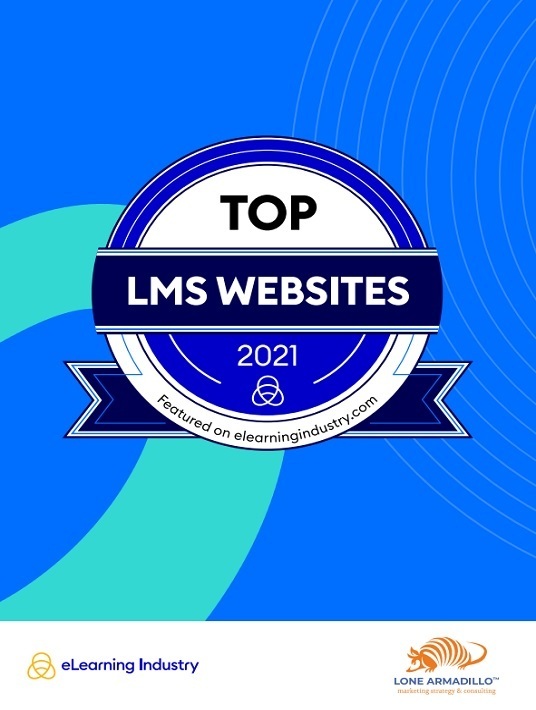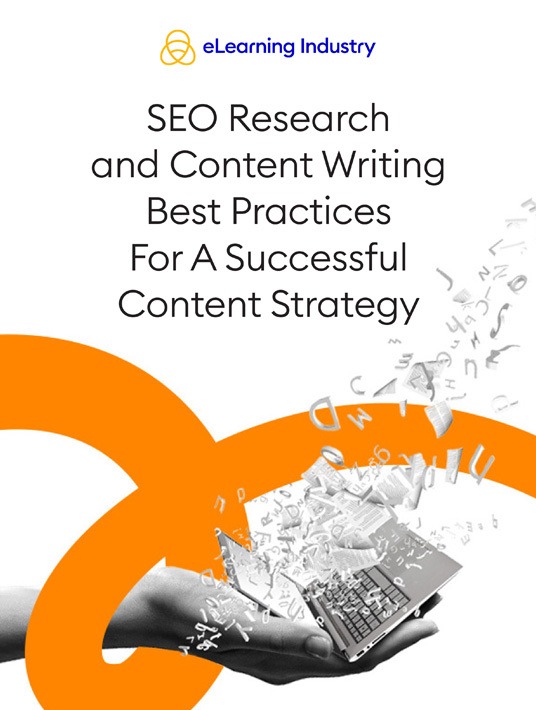What May Be Missing From Your LMS Landing Page
You've created a winning content marketing strategy that delivers the complete package. From informative articles and demo videos to social media polls that engage prospects and gather feedback. However, your LMS marketing strategy may be in vain if the embedded links lead to ineffective LMS landing pages. Visitors are more likely to sign up if your site is polished and accurately portrays your brand image. Here are 9 things that may be missing from your LMS landing page.

9 Things That Will Improve Your LMS Landing Page Conversions
Your LMS landing pages may receive a ton of traffic, but the big question is: are you converting those visitors to leads? Unfortunately, there's nothing more frustrating for LMS marketers than having low landing page conversion rates. Things get even more complicated when you cannot specify the cause of it all.
Likely, there are many reasons why your LMS landing pages may be suffering from low conversion rates. And that's what this article will try to fix. Look at the following suggestions in this list and consider if anything is missing from your landing page or if you can make improvements and optimize your current assets.
And remember, landing page optimization best practices and conversion rate optimization are key if you want to turn visitors into customers.
1. Attention-Grabbing Headline
It all starts with a headline that makes visitors take notice and appeals to their emotions and/or practicality. For example, a thought-provoking question that encourages them to reflect on their current LMS platform, or a statistic that emphasizes the importance of choosing the right LMS for the job. Grab their attention so that they're more likely to stay on the page and learn more about your LMS product, as well as your brand. And remember, personalization is key here. Maybe you have a specific buyer persona. So, instead of using copy that talks to everyone, use copy that is tailored specifically to the wants, needs, and pain points of your ideal buyers.
2. USP Showcase
Any LMS marketing guide you read will tell you that standing out from the crowd is essential. Prospects who click on your LMS landing page should immediately know what sets you apart from the rest. How your unique selling points tie into real-world uses and can help them achieve their online training goals. Show off the features and functions that are most valuable to your target audience. Specifically, those that address their pain points and allow them to improve not only ROI but also overall employee performance. Again, personalization here is key. As is creating emotions. Make them feel the difference and see why your eLearning business is the better choice. Distinguish yourself from the rest and you'll see your sales growing.
3. Relevant Multimedia
Nobody has the time to sit through a half-hour recorded webinar that highlights every selling point or real-world benefit. However, they will enjoy a quick three-minute demo video that showcases your LMS product in action. Include relevant multimedia on your LMS landing page that takes visitors' time constraints into consideration. Focus on aspects of your LMS platform that matter most to them instead of trying to wow them with dazzling feature films that cover every ownership perk.
4. Standout Reviews
You probably can't fit all the glowing reviews and testimonials from happy owners on your LMS landing page. But you can publish standout reviews that emphasize your product's value for money. It's also wise to include links to third-party sites that feature positive ratings from users so that interested prospects have access to further proof. Remember, visitors are more likely to purchase your LMS if it's tried and tested.
5. Clear Branding
One of the primary purposes of setting up an LMS landing page is to broaden your online presence and enhance your brand image. As such, it must feature clear branding elements such as logos, messaging, and images that reflect your identity. To create a logo, use an advanced branding and graphic design logo maker to save time and other valuable resources. It's also a good idea to integrate social media links so that prospects can interact with your brand on other platforms.
6. Sign-Up Incentives
Another common and effective LMS marketing technique is offering a free eBook or software upgrade to coax qualified leads into purchasing your LMS product. Always mention exclusive incentives that buyers will receive when they sign up for your LMS within a given time frame. For instance, if they purchase the platform by the end of the month, they'll receive add-ons or access to your extended asset library. This lets them know that there is urgency and prompts them to buy the software immediately instead of clicking away to give it more thought—and potentially invest in a competitor's product.
Looking for more incentives on how to make them an offer they can't refuse? You'll enjoy reading my latest article on how to increase LMS lead conversion rates.
7. Contact Details
Visitors should know how to get in touch with you and interact with your brand directly, whether it is through an email address, toll-free number, or simple and straightforward contact form. In fact, you may want to opt for all of the above to give them ample choice. You must also include a brief bio that introduces them to your brand and/or representatives. For example, you might have separate sales consultants depending on their geographical location or business objectives.
8. Opt-In Form
An opt-in form allows you to distinguish qualified leads from casual visitors. These people are willing to provide you with their contact details in order to receive LMS marketing materials and/or free bonuses. For example, a printable guide or access to an exclusive webinar. Bear in mind that prospects don't have time to fill in a lengthy opt-in form. Nor do they want to provide you with every detail about their organization or training history. Keep it short and to the point. Just a handful of targeted questions to identify their intended use and current online training goals.
Are your sign-ups low? Here's how to increase LMS website conversions in 6 easy steps.
9. Emotionally Compelling Call To Action
Wrap it all up with a call to action that prompts prospects to sign up for your mailing list and, ultimately, purchase your LMS platform. For this, you need to appeal to their emotions and create a sense of urgency. The secret is to help them relate to the LMS marketing content and reflect on how your LMS will benefit them personally. For example, "Are you ready to put a stop to the online training overspend and finally achieve your L&D goals?" emphasizes the fact that your LMS will allow them to stretch their resources and accomplish their online training objectives. But only if they commit and click on the link that redirects them to your free trial sign-up page. Better yet, they skip right to the "buy now" section of the site.

Conclusion
These 9 LMS landing page elements are essential for sales success. Not only do they bolster consumer confidence, they also improve your online reputation and brand image. However, the key is to create targeted LMS landing pages for every group, demographic, or customer persona. This allows you to focus on their specific pain points, online training challenges, and product requirements instead of trying to please everyone with a single LMS landing page that misses the mark.
Expand your reach and seize control of your promotional spending. Launch a PPC ad campaign with eLearning Industry to maximize your online exposure without breaking the bank.








